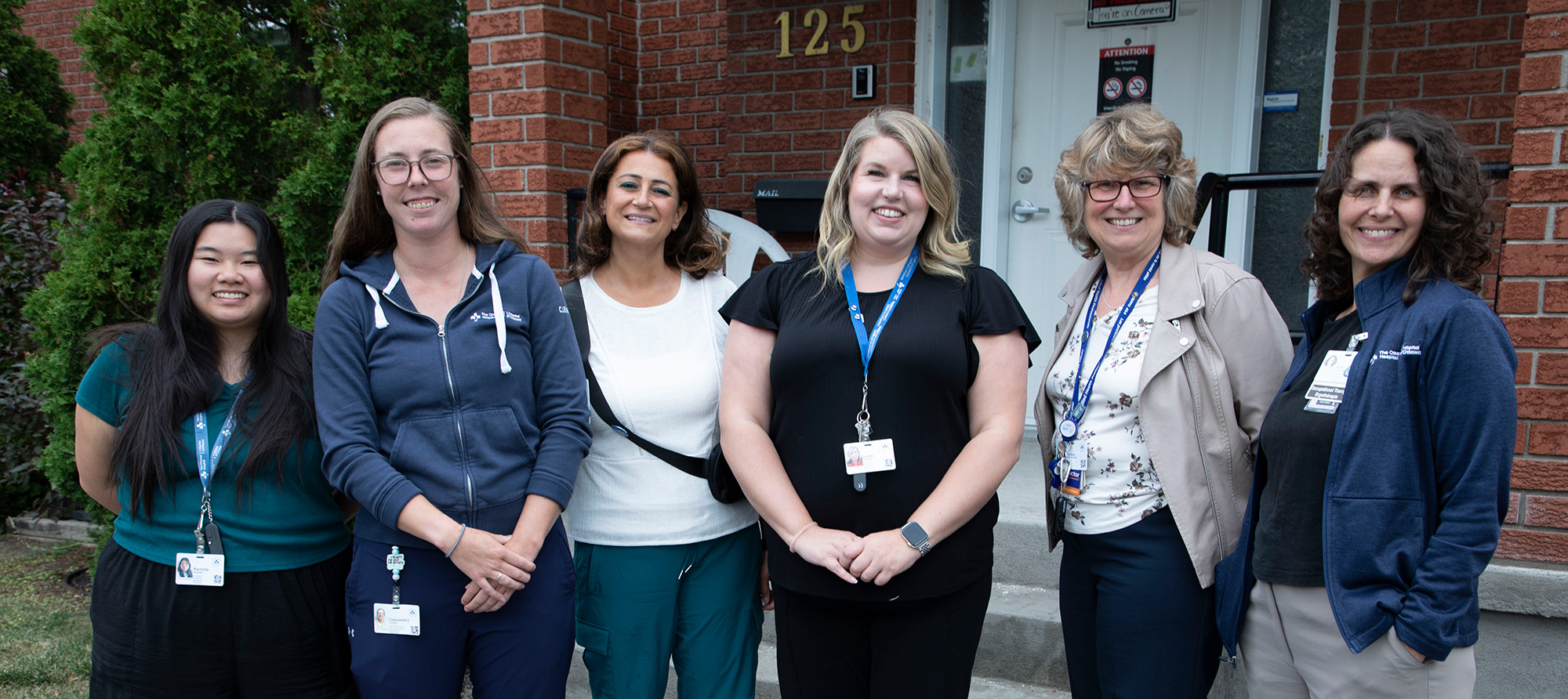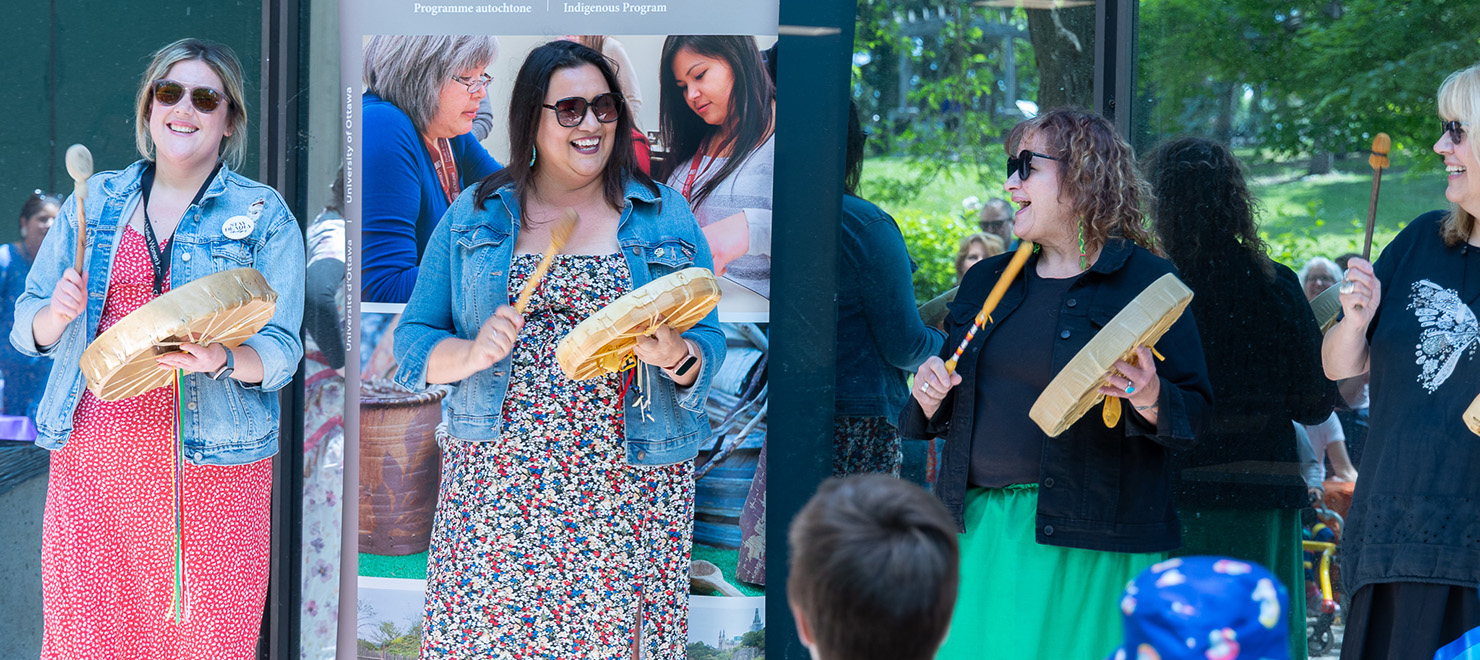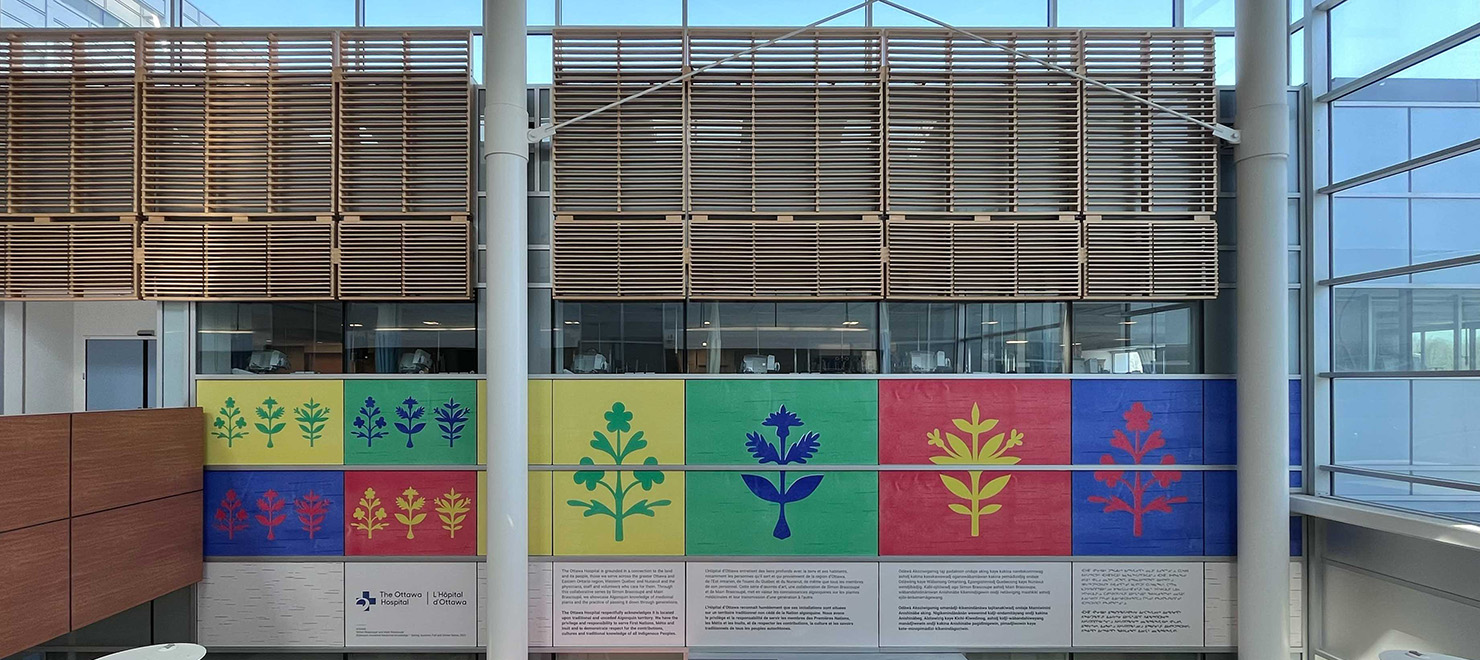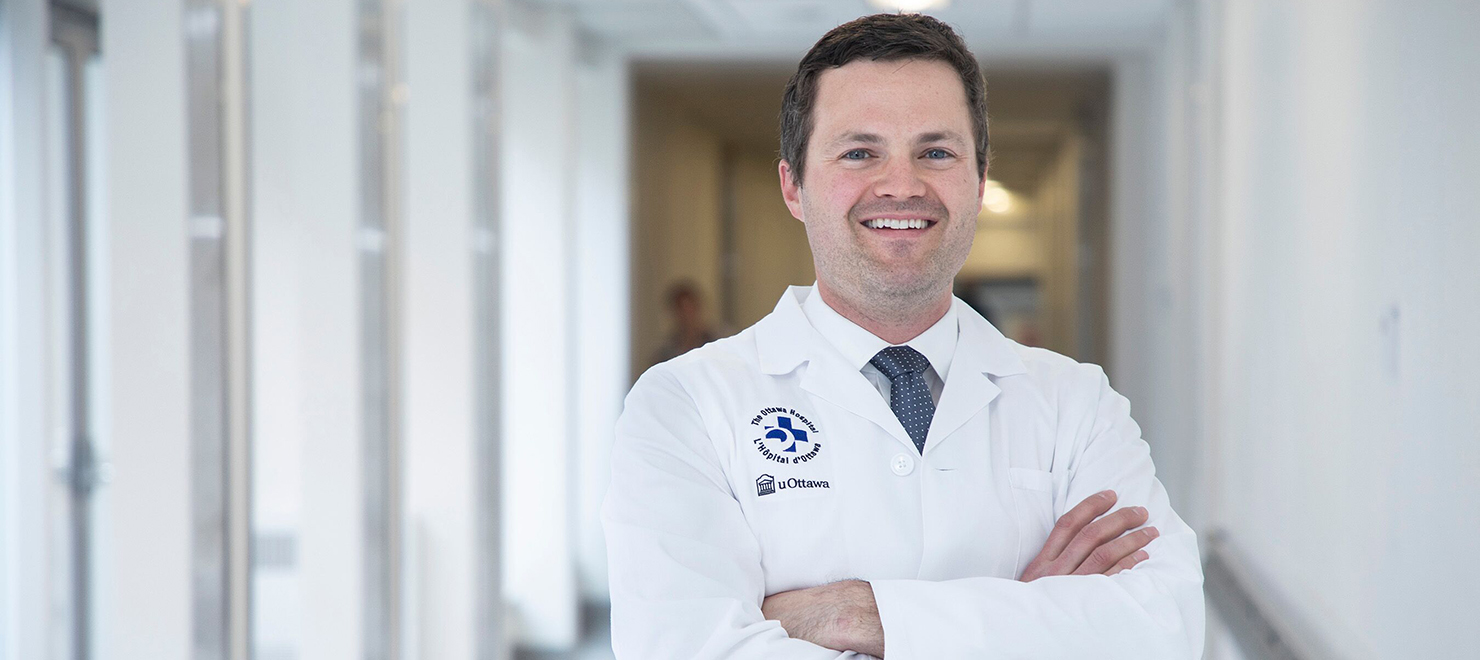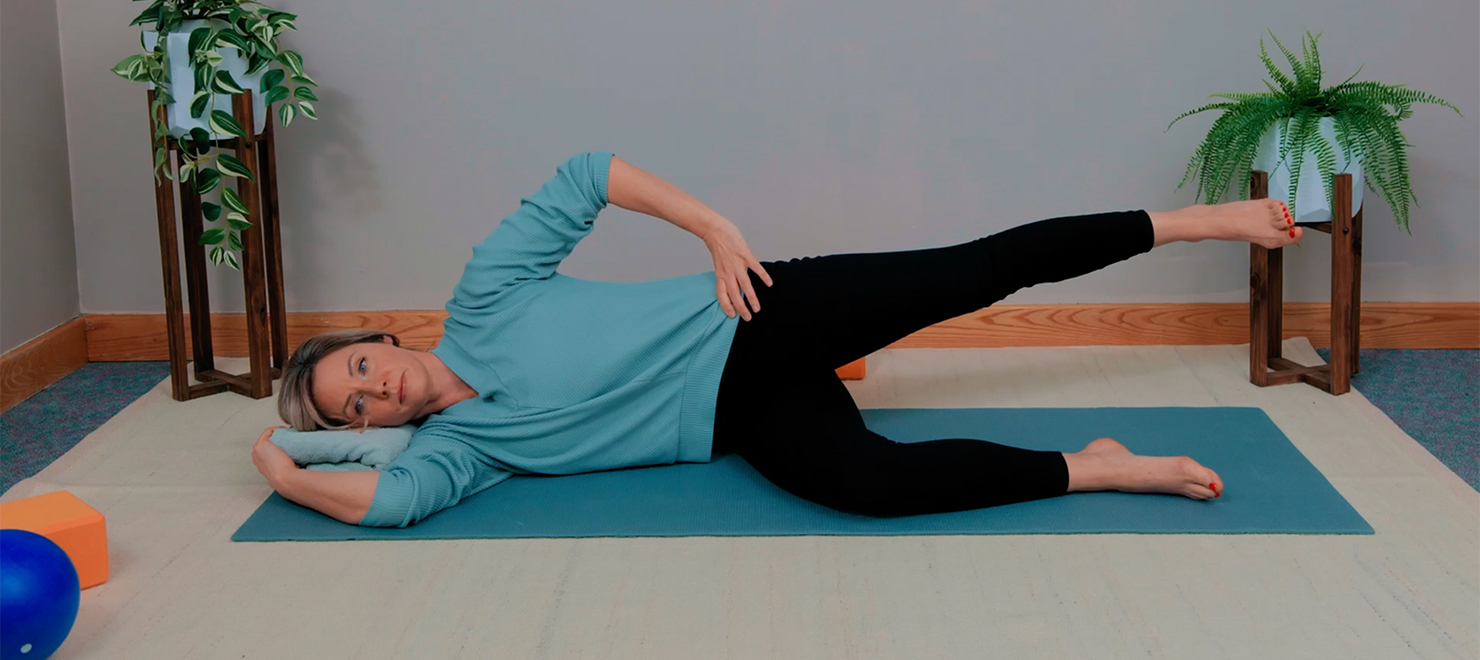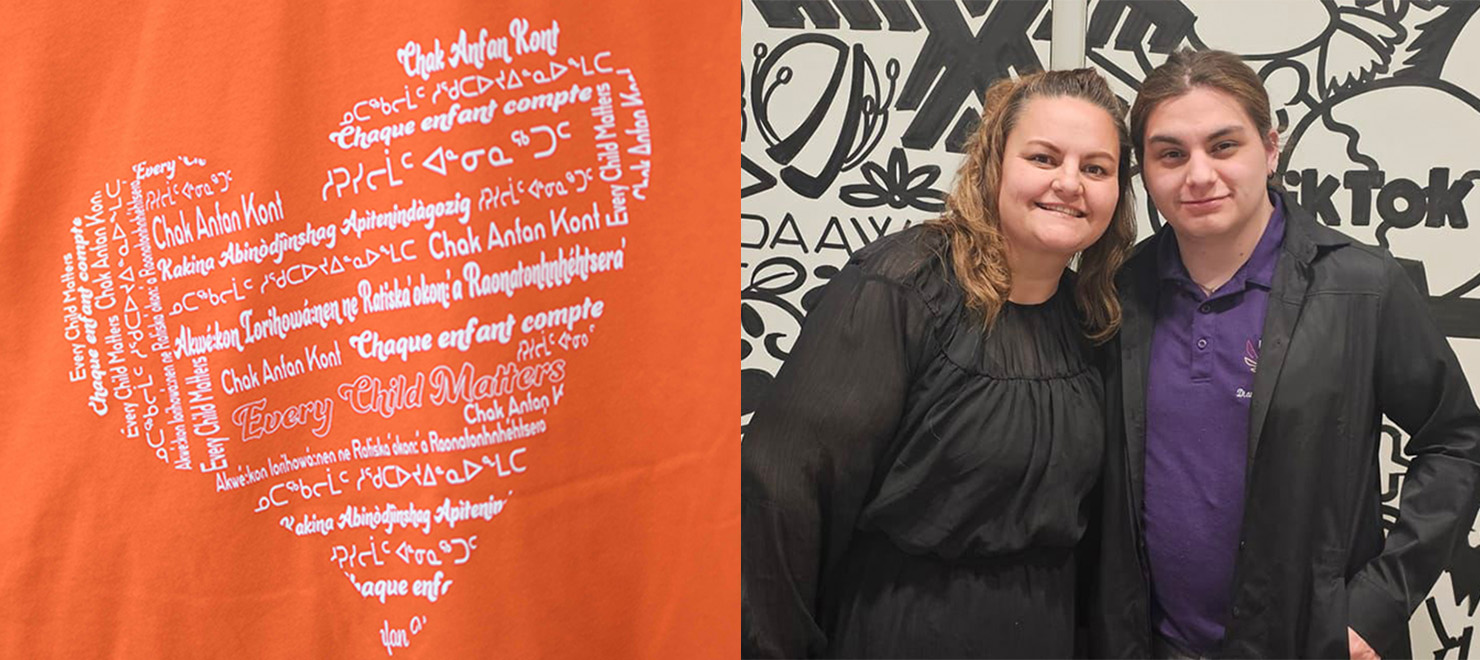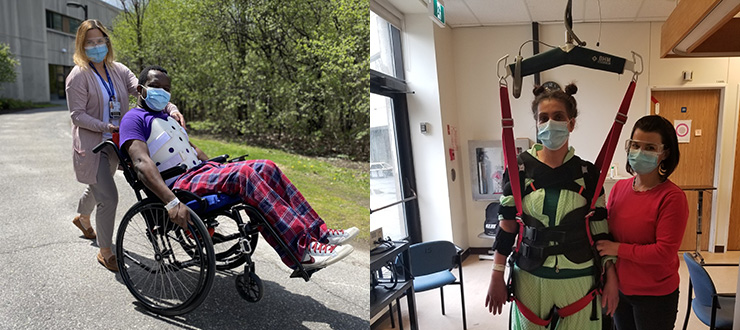
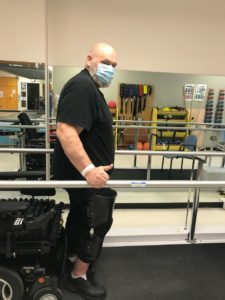
His sex life wasn’t the first thing on Richard Gordon’s mind when he experienced a spinal cord injury (SCI) in Winter, 2021, but learning how he would navigate sex as a paraplegic is now an important part of his rehabilitation at The Ottawa Hospital Rehabilitation Centre.
“I’m still young,” said Richard. “Before my injury, I was very active sexually and I didn’t want to change that. That’s something that was important to me and my wife. It’s something that I don’t want to lose, so of course, that was something I worried about.”
In the past, whether or not a patient received information about sexual health after a spinal cord injury depended in large part on which rehabilitation centre they went to. In fact, a review of current offerings in rehabilitation centres across Ontario suggested that gaps existed not only in the area of sex education after an SCI, but also in other domains as well.
Provincial project seeks to standardize access to quality care
A new provincial project, called the Spinal Cord Injury Implementation and Evaluation Quality Care Consortium, or SCI IEQCC, is aiming to help standardize best practices in high-priority areas so that patients with spinal cord injuries can receive equitable, high-quality support no matter where they receive rehabilitation. In addition, the project is designed to educate members of a patient’s care team, including doctors, nurses, physiotherapists, occupational therapists, social workers, psychologists, recreation therapists and others so that they can implement best practices in the course of their work and together optimize patients’ outcomes.
The Ottawa Hospital and four other sites across Ontario are participating in the SCI IEQCC. The leaders of the Ottawa group are Dr. Vidya Sreenivasan, Andrea Chase, Susan Saulnier, Dorothyann Curran, and Lara Kelly.
“The Ottawa Hospital values equity,” said Dr. Vidya Sreenivasan, Medical Director of the Spinal Cord Injury Rehabilitation Program at The Ottawa Hospital Rehabilitation and a site lead for SCI IEQCC. “We want to provide equity of care across the province and across the nation so that everybody living through this very life-altering event gets equal access to care that is standardized.”
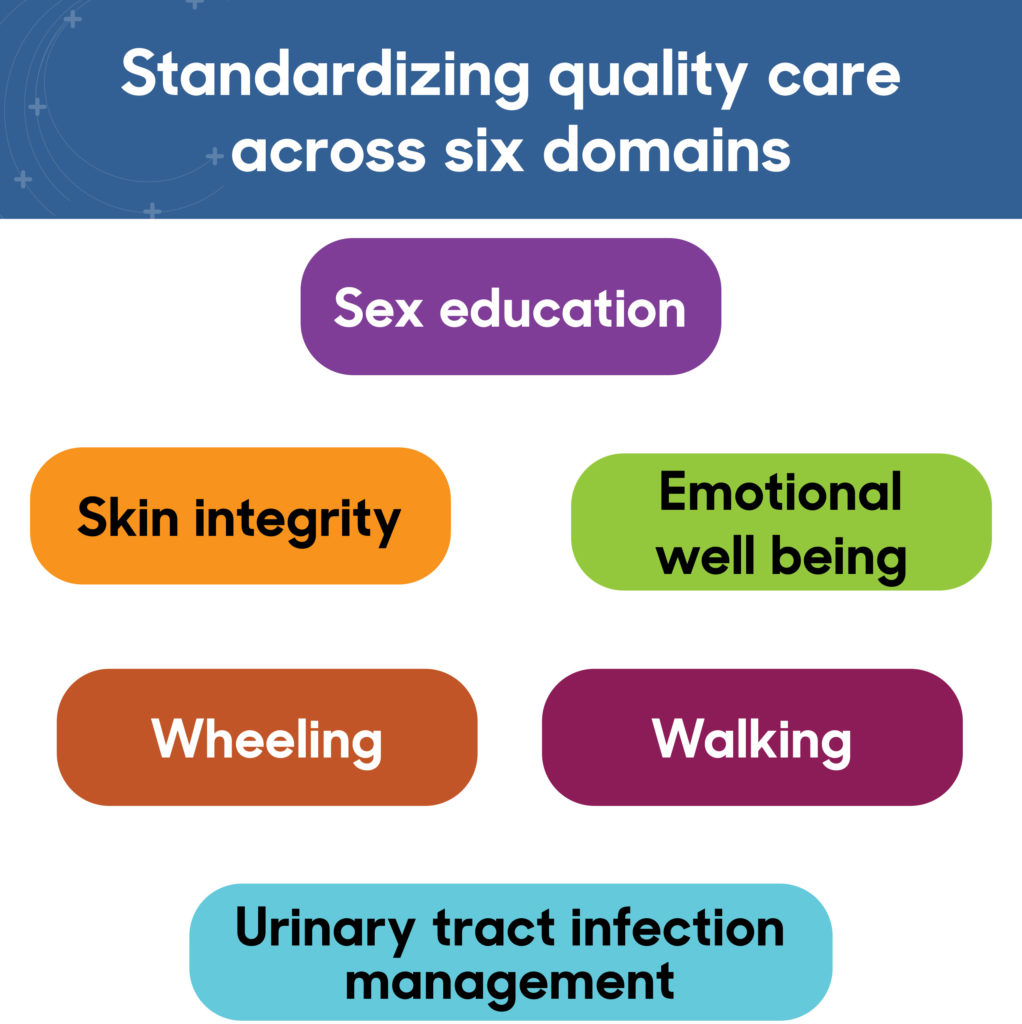
The leaders of the SCI IEQCC partnered with Spinal Cord Injury Ontario (SCIOntario) to create a dialogue about what topics were top priorities for people living with SCIs. By partnering with SCIOntario and other sites across Ontario, the hope was to make quick and significant gains in priority areas.
“SCIOntario is pleased to be involved in this project because it requires a combination of expert involvement,” said Federico Boccheciampe, the Peer Program Coordinator for Spinal Cord Injury Ontario. “The Ottawa Hospital brings top-notch medical expertise and Spinal Cord Injury Ontario provides the living expertise and experience post-SCI. By sharing our expertise, we hope to further improve the quality of interdisciplinary rehabilitation care.”
“Sex education wouldn’t have necessarily been something that we as health-care providers would have thought was the top priority,” said Andrea Chase, a physiotherapist at The Ottawa Hospital and Implementation and Evaluation Specialist for the SCI IEQCC at the Ottawa site. “When someone initially has an injury, we think of walking, moving a chair, pain management and emotional well being, but it was actually sexuality. So that was one of the areas that we spent the most effort on over the last year.”
As part of the project, patients like Richard receive tailored education, resources and an open invitation to talk about sexual health going forward.
“Dr. Sreenivasan is really, really good,” Richard explained. “She talks to you and you don’t feel intimidated or anything like that. She gets really down to your level and just starts discussing the different options.”
In addition to what he learns in rehabilitation, Richard plans to join a specialized patient group that meets to discuss sexual health after experiencing a SCI.
Wheelchair skills training helps people with spinal cord injuries transition back to their communities
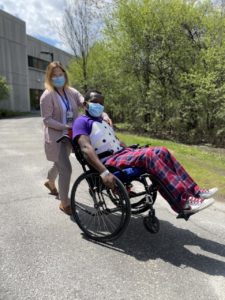
Sexual health is just one of the priorities for these patients. For many people who have experienced an SCI, learning how to use a wheelchair confidently is a key part of transitioning back into the community. Like sexual health education, wheelchair skills training was inconsistent across the province. But the project is helping to standardize the training for all.
“Any wheelchair user is now going through a similar wheelchair skills training program and evaluation at the end of their stay at any of the five sites participating in the project,” said Andrea. “The same is true for walking, emotional well being and the other domains of the program.”
And although the desired skills and evaluation is standardized, rehabilitation centres are encouraged to customize the training to each patient.
While at the Rehabilitation Centre at The Ottawa Hospital, for example, patients who use a wheelchair full or part time receive wheelchair skills training such as turning around in tight spaces, getting up inclines, and popping a wheelie to get down a curb. Typically patients would go outside to learn these skills. One of the considerations in the planning of the new Civic development is to potentially incorporate an outdoor space were patients can practice these skills during mild months and take training indoors during the winter. In the meantime, creative indoor solutions are already being planned.
A customized ramp for practicing wheelchair skills

Louis Goudreau and other members of the rehabilitation engineering team at The Ottawa Hospital is developing a foldable platform that can transform to provide patients who use a wheelchair with various challenges, including a five-degree slope, a ten-degree slope, a side slope and two-, four- and six-inch curbs. Two steps with handrails on either side help ambulatory patients practice climbing and descending stairs and help people who use wheelchairs and their families navigate getting the wheelchair up and down that way.
“This piece of equipment is invaluable,” said Andrea. “It helps our patients practice skills they’ll need to manage common barriers in the community and helps their families learn how best to assist them.”
This ramp, along with other equipment such as the Rehabilitation Virtual Reality Lab, helps patients with all levels of injury learn practical skills for their life after leaving the rehabilitation centre.
“I have to adjust to my new life and my new way of living.”
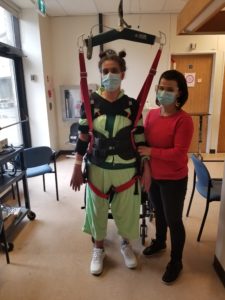
Lodi Sculthrope is early in her rehabilitation, but is seeing progress every day. The animal lover experienced a spinal cord injury in Winter 2021 when she was hit by a snowmobile. She spent about six weeks at the Civic Campus ICU before transferring to the rehabilitation centre.
Lodi’s life has changed completely, and her determination is undeniable.
“So far it’s been great; it’s amazing,” said Lodi. “There have been hard days and a lot of work. I have to adjust to my new life and my new way of living.”
Lodi and her care team are working together to help Lodi walk and increase movement in her arms and hands. When she arrived at The Ottawa Hospital Rehabilitation Centre, she was largely unable to move and completely dependent on others for every element of her care.
“Day by day I’ve been progressing quite a bit,” she said. “Everyone is seeing how much progress I’ve been making and everyone is getting excited.”
“We are slowly starting to see Lodi take back her life by regaining movement and learning how to participate in her every day care needs,” said Andrea.
She is now an active participant in learning how to care for herself, including how to maintain skin integrity and prevent urinary tract infections, two domains falling within the scope of the provincial project.
Lodi and Richard are both very thankful for the care and information they are receiving at The Ottawa Hospital Rehabilitation Centre and are determined to shape their own futures.
“I’m not putting any limits on where I can go,” said Richard. “I’m just going to keep on working hard, doing my exercises, going to physiotherapy. Where I end up doesn’t matter. The only thing I can do is work as hard as I can, and where I get to is where I’m going to get to.”
And as the project expands into a national initiative in 2021-2022, more patients with spinal cord injuries will have better access to standardized, high-quality care that will help them shape their own futures, too.

Support patient care and research at
The Ottawa Hospital
You might also like…
How the Robin Easey Centre supports recovery after a brain injury
“When our clients have a purpose — even something as simple as a meaningful activity — it gives them new hope in life.” In this short Q&A, discover how the team at the Robin Easey Centre helps clients rebuild their daily routines and regain their independence after an acquired brain injury.
Celebrating the summer solstice and National Indigenous Peoples Day: A photo essay
The summer solstice has deep spiritual and cultural significance for Indigenous communities around the world. Last week, we joined CHEO and uOttawa for a special celebration to mark this important time of year, and to recognize the rich cultures of First Nation, Inuit and Métis Peoples.
A guide to services at The Ottawa Hospital for Indigenous patients and families
At The Ottawa Hospital, we are committed to providing culturally safe care for First Nation, Inuit and Métis patients and families. We are working with Indigenous partners to identify ways we can make your time in hospital more welcoming. Here are some of the ways we’re doing that now.
Do you have a surgery coming up? Here are five “prehab” tips to help you recover faster
You’ve probably heard about rehabilitation, but what about “prehabilitation”? Prehab is all about getting your body and mind in top shape before surgery so you can enjoy a smoother, quicker recovery. Discover five essential prehab strategies from researcher Dr. Daniel McIsaac.
A guide to mindful movement for pain management
Are you seeking relief from pain, discomfort or stress? In these four videos, Physiotherapist Cristin Kargus guides you through gentle, mindful movements to help you reconnect with your body.
More than a shirt: Orange shirts support healing and community
Pamela Meness, owner of Diamond Phoenix Creations, the Kitigan Zibi-based supplier of The Ottawa Hospital’s Every Child Matters orange t-shirts, says her business is about healing and community.


 To reset, hold the Ctrl key, then press 0.
To reset, hold the Ctrl key, then press 0.
